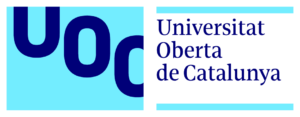Con Karmele Mendoza Pérez (Universidad Autónoma de Madrid)
Date: Friday, 18th December 2015
Place: 22@ Building, Rambla Poblenou, 156, Room -1B, 08018 Barcelona
Time: 5pm – 7pm
Resumen
En este seminario me propongo reflexionar sobre el alcance y los retos de enfoques de investigación colaborativos. Parto del trabajo de campo realizado para mi tesis doctoral en un centro de menores de la provincia de Bizkaia desde enero a junio del 2015. El objetivo que guía este trabajo es acercarse a los significados que se ponen en juego para los menores migrantes, analizarlos y comprender cómo median en sus trayectorias vitales. Para ello entendemos que estos significados que se ponen en juego deben ser construidos a partir de una metodología de investigación que permita una colaboración intensa y extensa en el propio proceso investigador.
Con esa meta, utilice metodología etnográfica general y, en particular, un taller construido a partir de distintas técnicas artísticas, que invitara a los menores ser participantes activos y comprometidos desde el principio en la generación del material de análisis sobre sus rutinas (rutas, espacios en la ciudad) y actividades expresivas (prácticas estéticas). El taller se convirtió en un espacio de encuentro seguro y de experimentación donde se generaron distintos productos -fotografías, una documental amater y una cartografía de la ciudad de Bilbao- que hablan de las rutinas y las prácticas expresivas de estos jóvenes. Es por ello que las narraciones, los temas, etc. incluidos como los excluidos por los co-investigadores en los productos, así como el proceso de realización de los productos irán construyendo su particular visión de lo que significa ser menor migrante dentro del marco de la protección y la ciudad.
English abstract
I intend to speak at this seminar about the current state of my doctoral thesis to reflect on the scope and challenges of collaborative approaches to research. My starting point is fieldwork carried out in a juvenile facility in the province of Bizkaia (Biscay) from January to June 2015. The objective guiding this work is to get closer to the meanings that come into play for migrant children, analyze these and understand how they intervene in the children’s paths in life. To do this, we understand that these meanings that come into play should be constructed on the basis of a research methodology that would allow intense and extensive collaboration in the research process itself.
With that goal, I used general ethnographic methodology and, in particular, a workshop built on the basis of different artistic techniques, which would invite the children to be active and committed participants from the beginning in the generation of material for analysis of their routines (routes, spaces in the city) and expressive activities (aesthetic practices). The workshop became a safe meeting space and a space for experimentation where different products were generated – photographs, an amateur documentary and a map of the city of Bilbao – that talk about the expressive practices and routines of these young people. That is why the stories, topics, etc. included and those excluded by the joint researchers on the products, as well as the process of making the products, will construct their particular vision of what it means to be a migrant child within the framework of protection and the city.
IMPORTANT: Free registration by sending an e-mail to Isabel Carol (icarol[at]uoc.edu).
